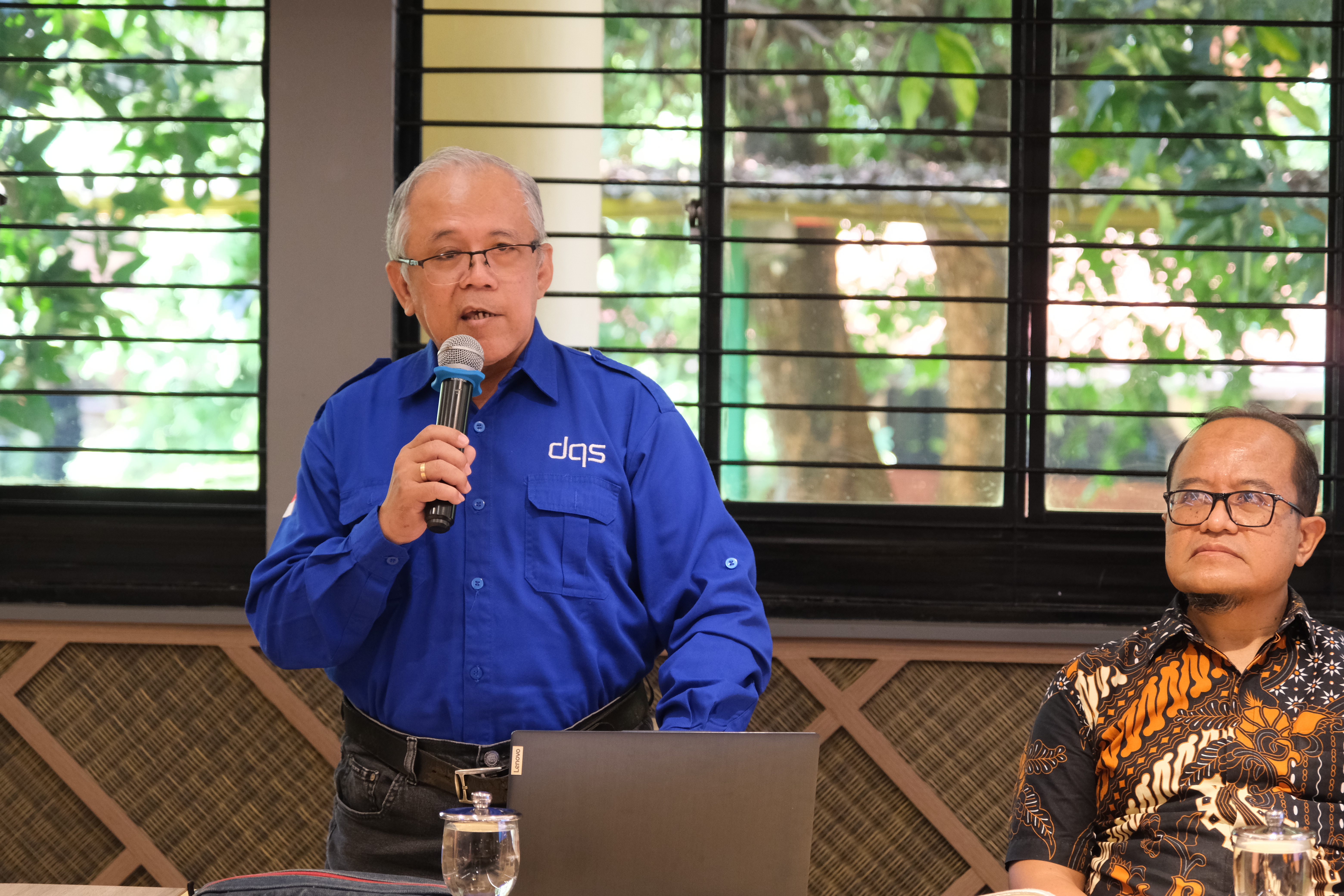The Faculty of Engineering, Universitas Indonesia (FTUI), held the Opening Meeting for the External Audit of its Quality, Environmental, and Occupational Health and Safety (OHS) Management Systems (ISO 9001:2015, ISO 45001:2018, and ISO 14001:2015) at the Smart Meeting Room, FTUI Dean’s Building (October 14). This activity marks FTUI’s strategic step in ensuring the continuous implementation of effective, measurable, and internationally standardized management systems.
The external audit took place from October 14–16, 2025, covering two main scopes. The first is a re-certification audit for the Quality Management System (ISO 9001:2015), involving eight departments and eleven work units within FTUI. The second is a surveillance audit for the Environmental Management System (ISO 14001:2015) and the Occupational Health and Safety Management System (ISO 45001:2018), encompassing all academic and research laboratories across seven departments as well as the i-Cell Building.
The three-day audit agenda included a comprehensive assessment of academic services, administrative processes, and laboratory activities. The process involved four auditors from Deutsche Gesellschaft zur Zertifizierung von Managementsystemen (DQS) Indonesia—Markus Dihanto, Hariadi Alim, Eko Yuli Susanto, and Okky Sephenryanto.
FTUI’s Vice Dean for Resources, Ventures, and General Administration, Dr.-Ing. Ir. Dalhar Susanto, emphasized that the audit is a vital component of FTUI’s quality improvement cycle.
“No matter how good an organization is, there is always room for improvement. The ISO audit is not merely an assessment—it is a reflection of our commitment to continuously enhance the quality and reputation of the Faculty of Engineering UI. As part of our quality culture, external audits play a key role in evaluating the consistency and effectiveness of our management systems,” he said.
FTUI’s Dean, Prof. Kemas Ridwan Kurniawan, S.T., M.Sc., Ph.D., also highlighted that the external audit should not be viewed as a fault-finding activity, but rather as an objective evaluation of compliance and improvement opportunities.
“An audit is not about finding faults or pointing fingers. It helps us see how well our systems align with the standards, and where we can make improvements. This principle allows FTUI to remain adaptive and excellent in engineering education governance,” he stated.
Through this external audit, FTUI reaffirms its strong commitment to maintaining a consistent quality culture, fostering continuous improvement, and strengthening its position as a leading engineering faculty at both the national and international levels.
***
Public Communication Office
Faculty of Engineering, Universitas Indonesia




